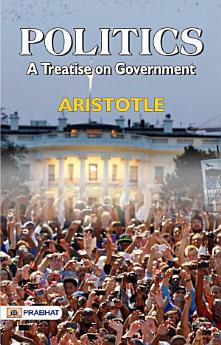Politics: A Treatise On Government: The Art of Governance: Politics: A Treatise on Government by Aristotle
About this ebook
Embark on a journey through the intricacies of human society and government as Aristotle explores the fundamental principles of justice, equality, and the nature of the state. Through meticulous analysis and incisive reasoning, he offers profound insights into the complexities of political life and the challenges of creating a just and harmonious society.
Themes of citizenship, democracy, and the role of the individual in society are expertly examined throughout the treatise, inviting readers to contemplate the rights and responsibilities of citizenship and the moral obligations of political leadership. Aristotle's timeless observations shed light on the enduring tensions between the individual and the collective, and the delicate balance between freedom and order.
Character analysis delves into the virtues and vices of political leaders and citizens alike, offering valuable lessons on the qualities of effective leadership and the pitfalls of tyranny and corruption. Through his examination of historical examples and hypothetical scenarios, Aristotle provides a roadmap for creating stable and just political institutions that serve the common good.
The overall tone and mood of "Politics: A Treatise on Government" are both intellectual and thought-provoking, inviting readers to engage in deep reflection and critical analysis of the principles and practices of governance. Aristotle's clear and systematic approach to political theory makes this treatise accessible to readers of all backgrounds and interests.
Since its publication, "Politics" has been celebrated as one of the most important works of political philosophy in Western thought. Aristotle's profound insights into the nature of power, justice, and the common good have inspired generations of scholars and leaders, shaping the course of political thought and practice throughout history.
Whether you're a student of political science, a philosopher seeking to deepen your understanding of the human condition, or simply a curious reader eager to explore the foundations of Western thought, "Politics: A Treatise on Government" offers invaluable wisdom and insight. Join the ranks of those who have been inspired by Aristotle's enduring masterpiece and discover the timeless relevance of his ideas.
Don't miss your chance to engage with one of the greatest minds in human history. Grab your copy of "Politics: A Treatise on Government" by Aristotle today and embark on a journey of intellectual discovery and enlightenment.








